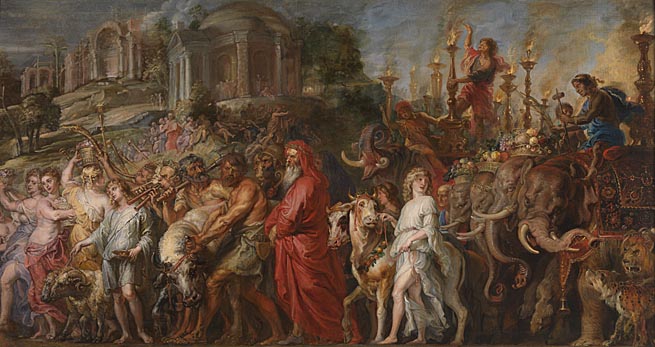Today we’ll be counting down the top four most influential Roman triumphs. So, what is a triumph? Think of it like a parade, only with ancient Romans and treasure. In Roman tradition, triumphs are typically celebrated after a big military victory and are an honor bestowed upon the general that led his army to glory. It is a large procession through the city where the victorious army marches and shows off all their spoils of war from gold to exotic animals to foreign kings. The order would typically be spoils, general, then soldiers.
Why were Roman triumphs so important? Roman triumphs were used as a way to bestow honor on Roman generals, but they were also used as tools for power. Glory from war brought respect and admiration to the generals leading triumphs and, therefore, a lot of them were elected for office. Triumphs most commonly occurred in the Roman Republic (509 BCE- 27 BCE) when people were still voted in as government officials rather than taking power by force, so they played a big role in Roman politics. As in Abby Hanson’s post, these processions, like the Apãdana at Persepolis, show the strength of individuals. Because these extravagant processions granted power to various generals, they were ended when Rome became an empire to not shift focus from the emperor.


4. Romulus
Romulus, of course, has to start off this list of influential Roman triumphs being a founder of Rome itself. And Rome wasn’t the only thing that he founded; Romulus led the first triumph for Rome after a victory over King Acron of Caenina. This battle was the first big win for Rome itself and set the precedent for many more Roman victories. The triumph is believed to have happened around 752 BCE soon after Rome had been founded.
3. Pompey
Pompey had the honor of celebrating three triumphs in his life during the Roman Republic. His first triumph was definitely the most pivotal of the three he earned because he wasn’t even an elected official at that time. Before Pompey, you had to be a dictator, a consul, or a praetor to celebrate a triumph, but Pompey was able to have the triumph granted to him in spite of that. Sulla was the dictator when Pompey was triumphant in Northern Africa. He first refused Pompey the triumph because of his lack of position, but changed his mind after being charmed by his boldness in asking. On his first triumph, he attempted to bring four elephants through the gates to the city but they didn’t fit! He had to ride in on horseback instead and bring the elephants around.
2. Caesar
Julius Caesar was an influential person on his own, so naturally he would have an influential triumph. He celebrated four triumphs in one grand procession; victories over Gaul, Pontus, Africa, and Egypt. While Caesar may have said that he came, he saw, and he conquered, these victories were the result of years of war, so the triumph was extremely lavish in order to properly celebrate the power of the Romans.

1. Augustus
Augustus celebrated one of the last Roman triumphs and brought an end to them altogether. He made triumphs exclusive to himself and people in his family, potential successors, and would refuse them for himself as well as his relatives. The last triumph that he celebrated was a victory over Dalmatia, Actium, and Egypt. This decisive change shows a shift from the Roman Republic into Imperial Rome as the power transferred from elected officials to a single emperor.

These processions were a huge part of Roman social and political culture and also played a role in a shift of governments. Now that you’ve learned all about Roman triumphs, you can spruce up your dinner conversations with cool new facts! “Hey, I bet you didn’t know that Pompey tried to ride an elephant into Rome!”
